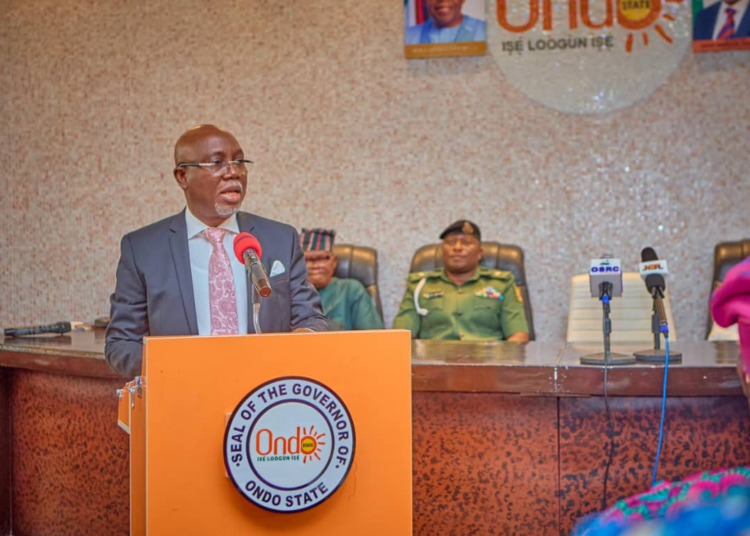Ondo State governor, Hon. Lucky Aiyedatiwa, has reaffirmed his administration’s zero tolerance for drug trafficking, cybercrime, cultism, kidnapping, and other related offences. He stressed that security and the rule of law remain the cornerstones of his development agenda.
The governor stated this yesterday when he received a delegation of the United Nations Office on Drugs and Crime (UNODC), led by Mr. Cheikh Toure, country representative of the UNODC, Nigeria Office, who visited him at the Governor’s Office in Akure.
Aiyedatiwa said Ondo State prioritises order, security, and the rule of law, which form the first pillar of his administration’s seven-point agenda.
He said the state has consistently supported security agencies through intelligence gathering, prosecution, logistics, and technical backing to strengthen the fight against crime.
“Recently, we distributed about 75 hybrid vehicles to our security agents to aid their operations, especially in flashpoint areas across the state. We have also given massive support to the NDLEA to tackle illicit drug cultivation and trafficking, particularly cannabis, which grows freely in some parts of the state,” the Governor said.
Governor Aiyedatiwa further highlighted Ondo State’s youth-focused initiatives, such as the One Youth, One Skill programme, which trains and empowers young people with vocational skills and startup grants to discourage them from crime and foster peace and productivity.
“Our ultimate goal is to build a resilient society where our youths are positively engaged and our communities live in peace and dignity. That is why we are ready to partner with the United Nations and other stakeholders to tackle crimes collectively,” he added.
Mr. Cheikh Toure commended the Ondo State Government’s security, economic development, and youth empowerment efforts in his remarks.
He explained that UNODC’s mission is to engage nationally and work directly with states and local governments to ensure grassroots impact.
Mr. Toure, who noted that Nigeria has one of the highest rates of drug addiction globally, stressed the need for preventive strategies, including education at primary and tertiary levels, community-based interventions, and stronger inter-agency collaboration to address drug abuse, human trafficking, and financial crimes.





